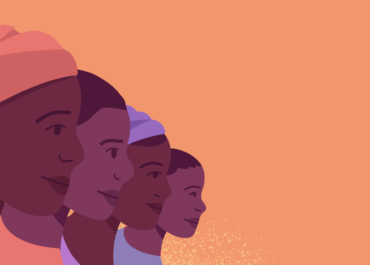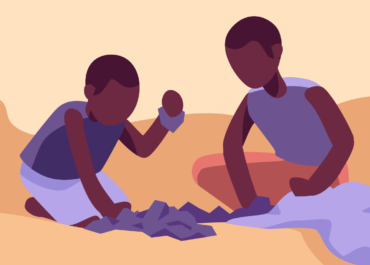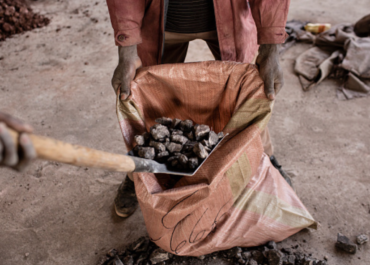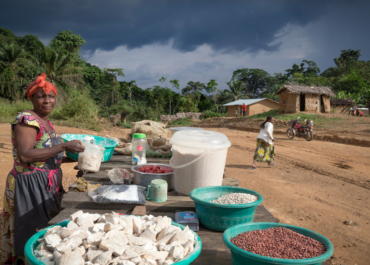Her Security
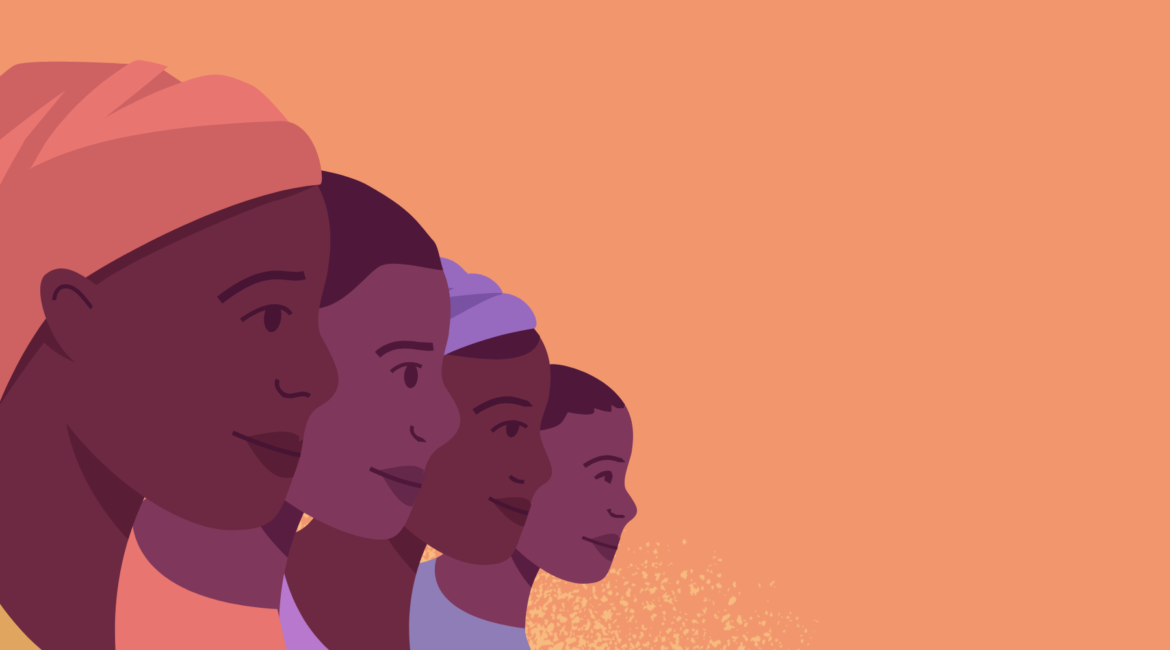
Promoting Due Diligence and Improving Women’s Security to Tackle Child Labour in Democratic Republic of Congo’s Artisanal Cobalt and Copper Mining Sector
IMPACT’s Her Security project aims to decrease child labour in Democratic Republic of Congo’s (DRC) artisanal cobalt and copper mining sector by addressing its root causes—specifically women’s insecurity. The project seeks to improve the overall well-being of women and youth in artisanal mining communities, while also strengthening capacity of the private sector and local authorities to implement due diligence.
How will Her Security improve women’s livelihoods and decrease child labour?
1. Improve security for women in ASM communities
Women are struggling to cover basic household expenses, leading to a reliance on income from child labour to cover basic needs. The project will employ strategies to increase women’s incomes, improving their overall security, and helping to keep families above the poverty line. Through local savings and credit associations, training on technical skills, and financial literacy support, women will be supported to diversify their incomes and access alternative economic opportunities. Training on human rights, health, and safety for women and girls will increase the security of mothers and their children across the artisanal mining communities.
2. Increase leadership to tackle child labour and strengthen gender equality in ASM sites
To influence collective action across communities, the project will launch an awareness campaign targeting socio-cultural and gender norms that perpetuate child labour and impede the rights of women working in the ASM sector. This campaign will support local actors to more effectively develop strategies to tackle child labour, while strengthening the leadership capacity of women and girls on these issues. Women leaders will be trained on human rights, relevant laws, as well as advocacy tactics to support them to speak out on decisions relevant to their homes, families, and communities.
3. Support due diligence and transparency in ASM supply chains
The project will train and support artisanal supply chain operators to implement due diligence. Training will emphasize the risks associated with child labour and the norms that perpetuate it. Local authorities will also be trained on due diligence implementation, and importantly, how to monitor and mitigate child labour at mine sites. By understanding how they can support economic actors establish more responsible and transparent supply chains, the local authorities will be able to implement their duties more effectively.
What is the link between women’s security and child labour?
In the first phase of the Her Security project between 2022-2023, IMPACT sought to understand how women’s security in DRC’s artisanal cobalt communities affects child labour. Through analysis of existing research, as well as focus groups and interviews with women artisanal miners in Kolwezi, we found that:
- Women are main contributors to household incomes in artisanal cobalt mining communities but the income they earn is not enough to cover basic needs
- Children work in artisanal cobalt mining to boost their family’s income and help pay for food, clothing, and school fees
- Women understand children are not allowed to work in mine sites but see no other alternatives for their survival
- Cobalt mining is the preferred income in the area for women and children as it requires no start-up capital and guarantees cash everyday
- Children circumvent bans on child labour by moving between mine sites, adjusting hours they work, and paying informal “access fees”
IMPACT’s research report, How Households Depend on Children’s Income: The Case for Improving Women’s Livelihoods to Eliminate Child Labour in Democratic Republic of Congo’s Cobalt Sector, outlined how poverty is a driving force behind child labour in the sector. When mothers are struggling, children step in to help—some encouraged by parents, or independently follow siblings, friends, and neighbours.
Phase 1 of the project was implemented by IMPACT, in collaboration with Bon Pasteur Kolwezi and the Good Shepherd International Foundation (GSIF), with funding from a member of the Responsible Minerals Initiative through the Responsible Business Alliance Foundation.
Implementing partners
IMPACT is collaborating with Bon Pasteur Kolwezi, EITI-DRC, the Ministry of Health, Education, Social and Humanitarian Affairs, Gender, Family and Children of Lualaba Province, the Good Shepherd International Foundation and Missio Austria, to implement the project.
The implementation of the project is supported by the Responsible Minerals Initiative and Bloom by IMPACT. The project works in close collaboration with numerous government ministries including the DRC’s Ministry of Health, Ministry of Social Affairs, and the Ministry of Mining, as well as the DRC government’s ongoing initiatives to tackle child labour and introduce responsible artisanal cobalt mining.
Funding

Her Security is a 4 year, 2.6 € ($2.7 million USD) project funded by the European Union.
Recent Highlights
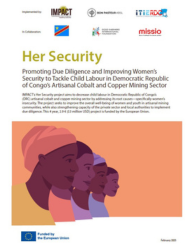
Her Security
June 2025
Learn more about how the Her Security project promotes due diligence and improves women’s security to tackle child labour in Democratic Republic of Congo’s artisanal cobalt and copper mining sector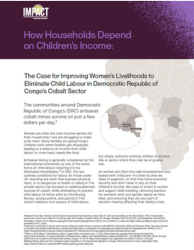
How Households Depend on Children’s Income: The Case for Improving Women’s Livelihoods to Eliminate Child Labour in Democratic Republic of Congo’s Cobalt Sector
July 2023
Our latest research paper examines the role of child labour in artisanal cobalt mining and its link to women’s security. Dive into further details on what children’s income goes towards, how children organize their work, and hear from women miners.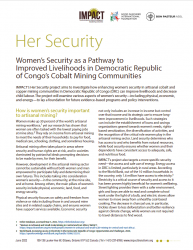
Her Security
June 2022
Learn more about how the Her Security project supports women's empowerment in Democratic Republic of Congo.Meet Gloria
Gloria is an artisanal cobalt miner in Kolwezi, Democratic Republic of Congo. Cobalt mining has always been a part of her life. But never did she imagine her young children would be working alongside her. This was not the life she dreamed of for them.

